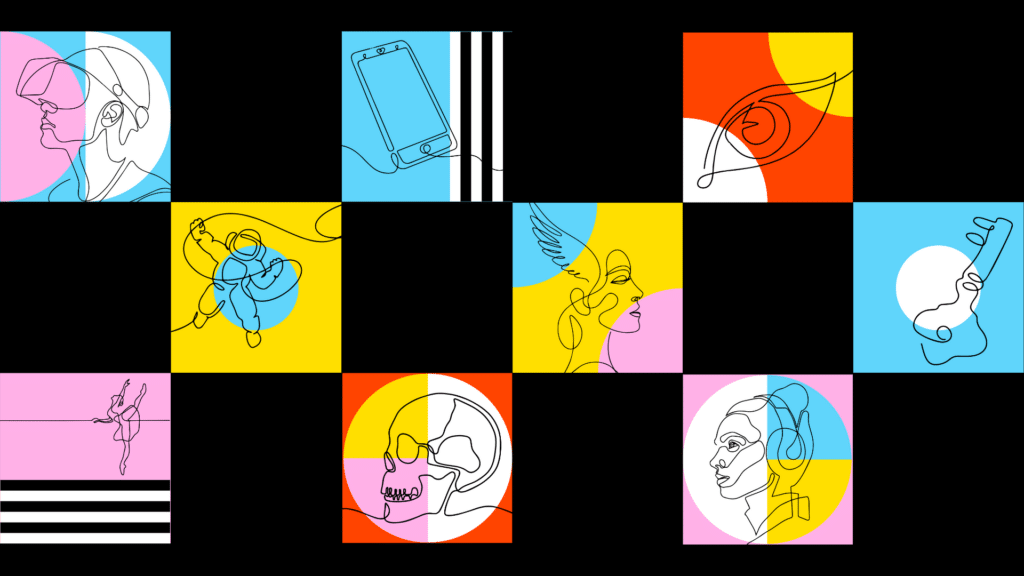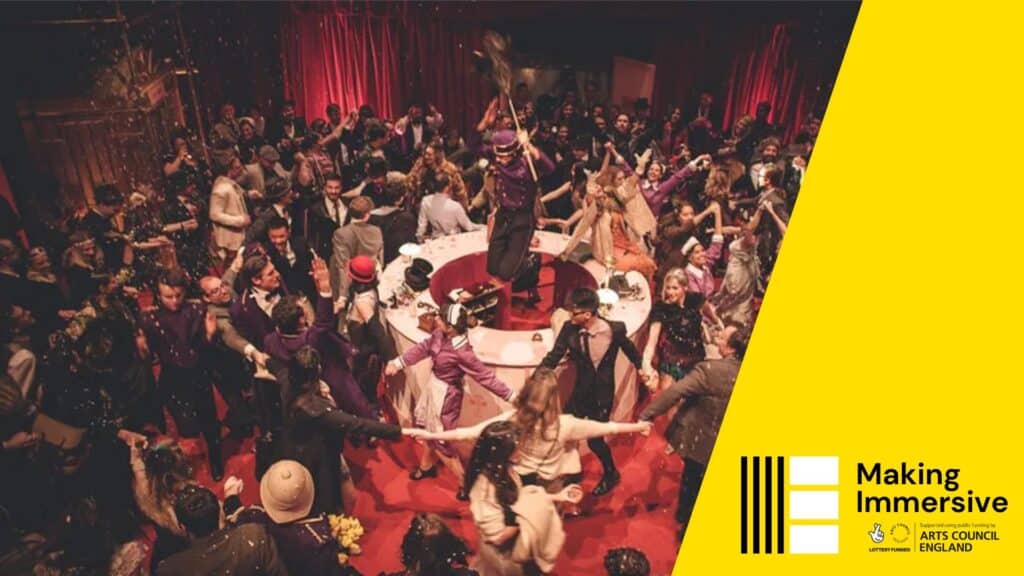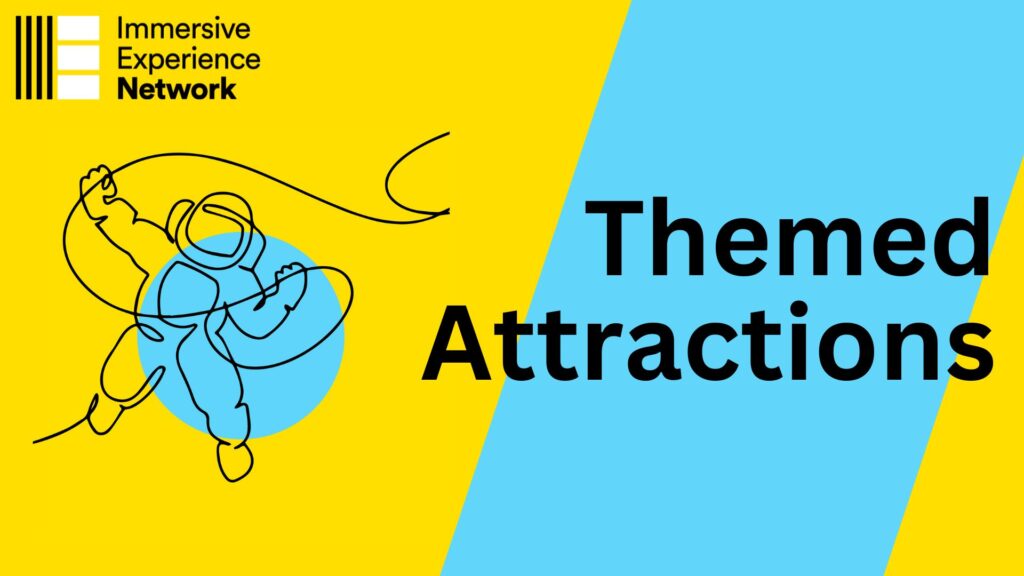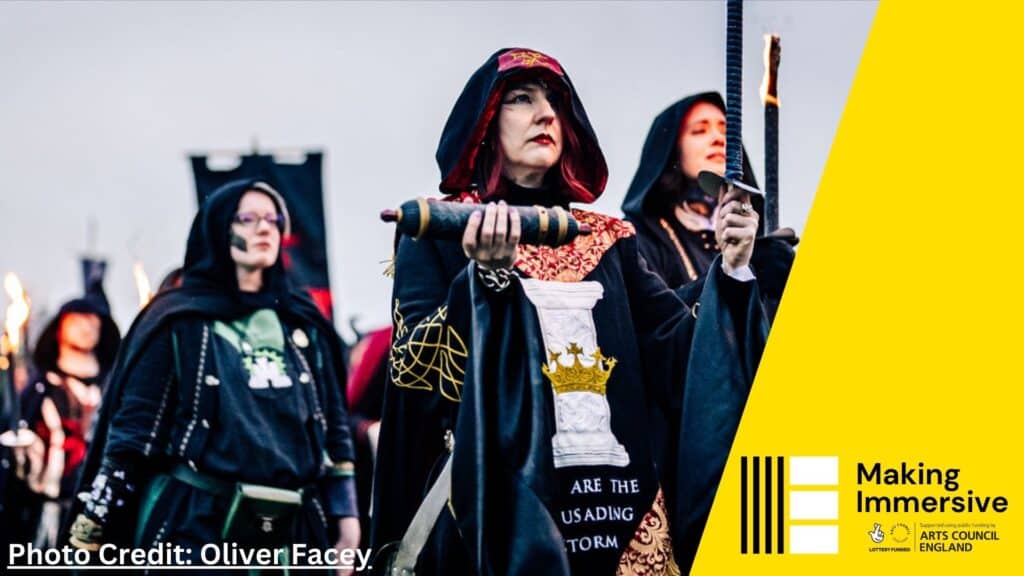In recent years, the “immersive” buzzword has been used to describe everything from wildly imaginative live experiences to high-tech toilets. While the word’s effectiveness in marketing has been dwindling from broad-reaching overuse, its importance as a principle of design both within and outside of the entertainment industry cannot be understated.
Immersive Industry Design Annual Report 2019
In a world where anything can be marketed as immersive, where do we start with trying to more clearly define the genre for the benefit of both audiences and creators? Josephine Machon has written an amazing article about the question of ‘What is Immersive’ so this article is a deeper dive into the various different types of Immersive work being created. The common thread through all of this work is that they incorporate immersive environments, put the audience at the center of the experience and offer an element of agency about how they engage, and involve an element of narrative story telling.
When we started the Immersive Experience Network in 2022 we started with the list of sub-genres which the authors of the Immersive Industry Design Annual Report 2019 defined as being under the ‘immersive’ umbrella. We spent a bit of time exploring some of the genres that we had never worked in before (hello LARP!), and met some extraordinarily talented people making work in other genres who we realised had solved some of the problems we were struggling to fix on our projects years ago.
This cross pollination of work is what the Immersive Experience Network has been setup for, to facilitate the exchange of knowledge and creatively inspire people creating work whose main purpose is to fully immersive their audience in an experience.
Why is this important?
An Immersive Experience will rarely purely fall into one of these sub-genres. Most immersive work sits in the middle of a complex Venn diagram of influences and elements drawn from a number of these sub-genres, for example many themed attractions will incorporate theatrical performances and include escape room style gameplay. This blending of forms makes it even more important to find collaborators and be able to access work from across the spectrum to learn what elements could be incorporated into your own projects.
The potential learnings are not just creative either, there are huge opportunities to learn from the operational and commercial aspects of this work. Did you realise for example that the UK Scare Attraction sector claims to attract audiences of over 500,000 people across over 50 attraction sites around the UK – just across October! That’s an extraordinary example of Immersive work operating commercially sustainably and at scale that anyone seeking to operate large scale experiences should be looking at.
Our Genres Guide
We’ve put together short guides to each of the Immersive genres. We aren’t claiming this is definitive but it is a starter for anyone interested in the origins and forms of Immersive work currently being made by creators. The Immersive sector is an emerging sector and we’ll try and update these pages as genres evolve or new forms are created.
Notable Absences
Notable absences from this list are purely digital ‘at home’ VR experiences. Whilst digital experiences are most communally described as ‘immersive’ because of the way they fully surround their audience in a digital world, the work that our community creates specifically has live elements to it. There have been some incredible examples of creators making VR experiences designed to be explored within a live theatrical or themed experience which fit into the ‘Location Based VR & AR’ category, but we think what our community makes is different from a pure VR computer game or VR film designed to be viewed at home.
We haven’t listed immersive dining as a specific sub-genre. Whilst there are more and more people doing some really interesting work in this area, the work that is most immersive often leans heavily on other performance genres like theatre which arguably it’s more appropriate to categorise it as.
We also haven’t included competitive socialising which is a rapidly growing section of the leisure market, this is because whilst they usually involve strongly themed physical environments and active participation from the audience, they lack the story telling elements involved in most immersive work.
The Immersive Genres

Scare Attractions
Scare attractions are in-person immersive experiences designed to thrill or terrify visitors. The genre comprises haunted houses and scream parks among other live experiences.
Immersive and interactive theatre
Immersive and interactive theatre is a kind of theatrical performance where the traditional physical, psychological or narrative boundaries between performers and audience members are blurred or entirely dissolved.


Escape Rooms
An escape room is an interactive group challenge in which all players are locked in a room, or multiple rooms, and need to work together to get out within a set amount of time.
Experiential Art
Experiential art is a contemporary art form that emphasises direct engagement and interaction between the artwork and its audience.


Location Based VR and AR
Location-Based Virtual Reality (VR) and Augmented Reality (AR) are immersive experiences that combine digital content with the physical world in one way or another.
Immersive Audio
Immersive audio is both a sound technology and a kind of content that uses sound to create a deeply engaging and enveloping environment for the listener.


Themed Attractions
Themed attractions are entertainment venues designed around a specific theme, offering immersive experiences that transport visitors into another place or time.
LARP
Live Action Role-Playing (LARPing) is an in-person interactive role-playing game where participants physically act out their characters’ actions without a script.


Transmedia & ARG
Transmedia experiences and Alternate Reality Games are experiences that take place across multiple platforms and types of media.





